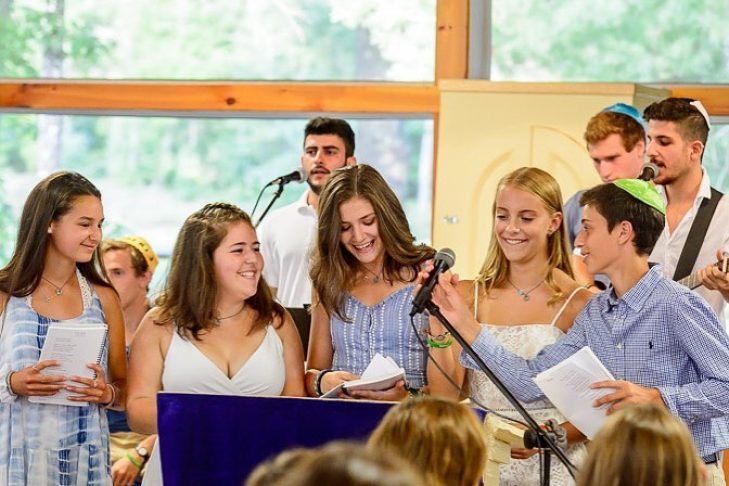You’ve finally packed the kids off to school. Life is settling down. You’re in a routine. It’s the perfect time to…start researching summer camps!
There are lots of reasons to consider Jewish overnight camp. Families rave about the community spirit, lifelong connections and newfound independence. Parents I interviewed for this piece also emphasized the importance of seizing normalcy during a pandemic. At camp, kids can be kids, far from the pressing worries of an often daunting world.
Of course, there are oodles of camps from which to choose—and we’ll talk about finding the right fit in future posts. For now, though, I wanted to get a sense of why families would send their kids off to camp at all. After all, it costs money (although there are lots of scholarships available!). You might even miss your children, believe it or not. But the positives are pretty transformative, especially for kids who might not be immersed in Jewish life daily during the year.
“There’s nothing like the experience, if you don’t go to Jewish day school, of being in an intentional Jewish community in terms of developing a sense of identity and belonging,” says Malden’s Jes Slavin Connelly, mom to an elementary-school-aged camper. With the right fit, “Ideally, camp is a place where you can experience moments that are surprising and magical and where you can be completely yourself.”
And when you’re presenting that most authentic version of yourself, it’s possible to make real, lasting connections.
“You meet lifelong friends,” says Arlington’s Erin Harris Singer, who grew up attending Jewish camp and is now contemplating it for her own kids.
“I have friends on Facebook whom I went to camp with, and now I see they’re sending their own kids. It’s multi-generational. The kids are best friends, just like the parents were,” she says.
“She found her people,” says Framingham’s Devorah Daniels, whose “artsy” daughter, Natanya, enrolled in URJ 6 Points Creative Arts Academy. She encourages parents to follow camps on social media to get an initial sense of their vibe, which is a low-maintenance way to begin your research.
“These camps really try to be what each kid needs. She has made friends that she’s in contact with all year. It has been extraordinary,” she says.
Of course, some kids get homesick. In Grafton, Liora Bram’s daughter, Eliya Gladstone, was hesitant in her first year at Camp Ramah New England as an 8-year-old. There, younger campers can enroll in a two-week option to make the time away more manageable.
“There was a sense of: You’ve got to try it, and if you don’t like it, you won’t go again. See if you like it. It’s two weeks. You could stand on your head for two weeks if you had to,” Bram says, laughing. The family bought matching stuffed animals as a bonding experience, promising to sleep with them each night to bridge the distance.
Eliya still sleeps with hers and, yes, she loved camp. She overcame her homesickness and ultimately felt as though the two-week session was too brief.
“Their self-confidence grows. It’s good to have friends beyond just the school system and the town you live in. It gives you more freedom not to be confined to old relationships,” says Anya Gorodetskaya, who lives in Sharon and sent her two older children to Camp Kingswood.
For her kids, it also boosted independence and problem-solving skills.
“They can’t call us and say, ‘Mom, I have a problem.’ They have to solve their problems and drama on the spot with the help of counselors who aren’t close family,” she says. “They have to be able to deal with their own emotions.”
Which is good for them—and, let’s face it, pretty good for you, too.
Keep reading for more dispatches about camp throughout the month, from finding a camp for kids with disabilities to camp love stories to summer friendships that stood the test of time.
Find a directory of Jewish overnight camps here.











